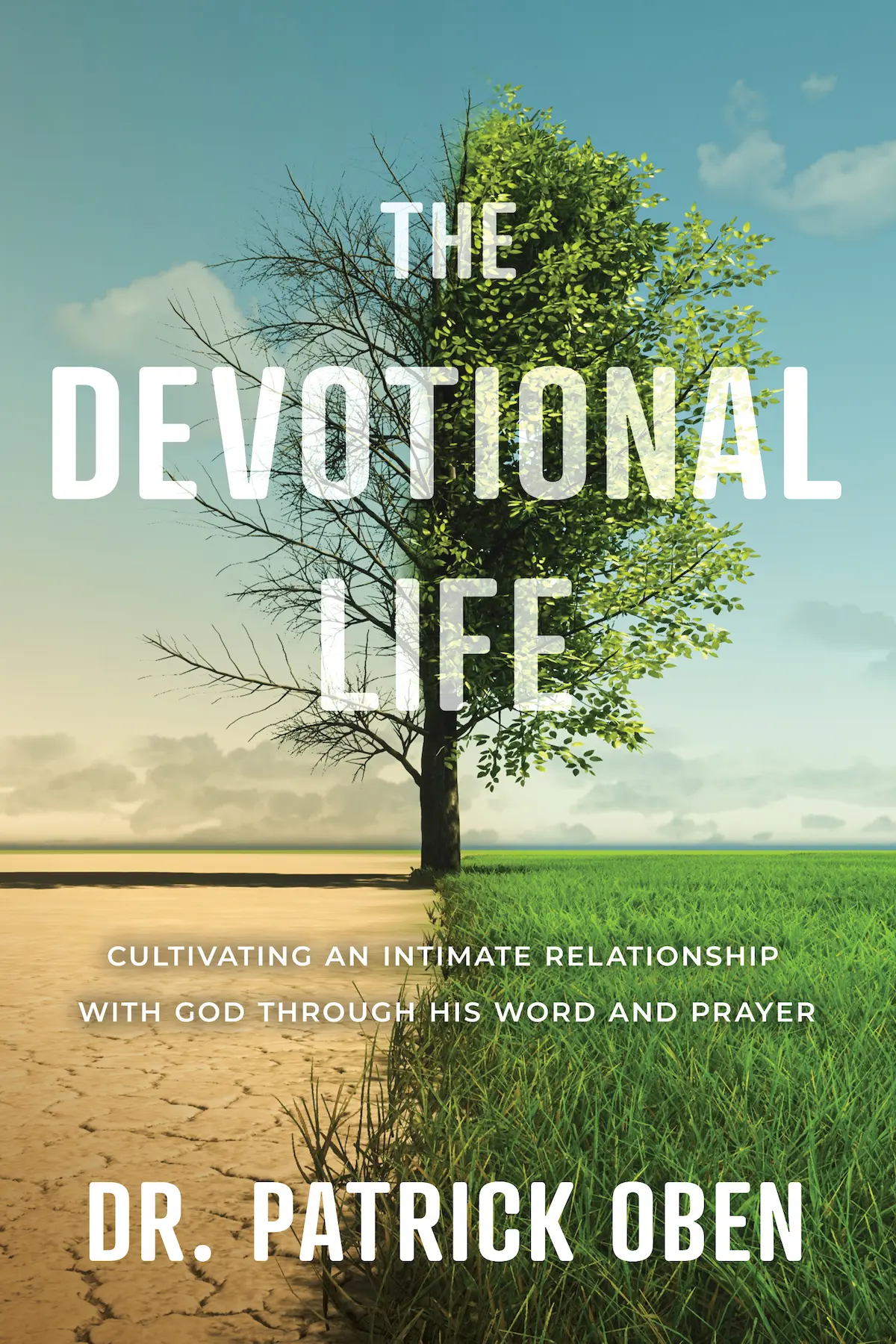The “Jezebel spirit” is a phrase that is becoming increasingly popular in some Christian circles. It has a buzz around it but has no unified definition because the scripture does not talk about anything or anyone explicitly labeled the “Jezebel spirit.” However, those who use this phrase refer to things that are biblical such as seduction, idolatry, or even witchcraft. It might simply be an issue of terminology and semantics here. In this article, I will logically show you who Jezebel was and what is the Jezebel spirit.
Similar articles:
- Succubus and Incubus Demons: Names, true stories, meaning, deliverance.
- Demonic Strongholds and How to Demolish them.
But first, let us look at the origin of the hype around the Jezebel spirit.

Who was Jezebel?
There are just two persons in the scriptures called Jezebel: one in the Old Testament, the Jezebel we know, and the second in Revelations 2:18-22 above.
The second Jezebel was “ A prophetess in the church of Thyatira who, according to Rev 2:20–23, “beguiles” the congregation “to practice immorality and to eat food sacrificed to idols.” Although she was probably a real person, her name Jezebel seems to be symbolic. It refers pejoratively to the “harlotries and sorceries” of the OT queen who supported the prophets of Baal and Asherah at her court (2 Kgs 9:22; 1 Kgs 18:19)” (1)
Scholars generally agree that this woman in Thyatira was called Jezebel allegorically, using the “real” Jezebel of the Old Testament to describe her actions. So in truth, there was just one woman named Jezebel in scripture.
We will get back to the spiritual implications of this symbolic Jezebel. But first, let us consider more carefully the Jezebel of the Old Testament. First, see how her family background shaped her life.
Origins of the Jezebel Spirit: Jezebel’s Family
Jezebel was the daughter of Ethbaal, king of the Sidonians, and wife of Ahab the son of Omri and king of Israel (1 Kgs 16:29–31). She was a princess from the land of Sidon. Do you remember Tyre and Sidon? Their names are a recurrent theme in Israel’s history.
Jezebel’s father, Ethbaal “had, after a period of revolution and anarchy, seized (c. B.C. 888) the throne of Tyre, which he occupied for more than thirty years. He was the first monarch of note who had reigned in Phœnicia since the days of Hiram, and his alliance was doubtless sought by Omri and Ahab in order to counterbalance the hostility of Damascus” (2).
Omri was the father of Ahab. The relationship with the Sidonians began politically. Ahab was seeking a treaty with Ethbaal to fortify himself. His marriage to Jezebel was born out of this political alliance. Ahab was given a princess from Sidon, and the day she entered Ahab’s palace, the history of Israel and Judah was forever changed.
There is more about her father. R.R Losch notes in his Bibliographic Dictionary of Bible characters “Ethbaal was not only a king; according to Flavius Josephus, he was also a priest of the storm god Melkart (Bel) and the fertility goddess Astarte (Asherah). Melkart and Astarte together are often called Baal”. (3). G.A. Yee in The Anchor Yale Bible Dictionary has some more interesting facts for us:
“Brenner suggests that Phoenicia followed the Mesopotamian practice of appointing the king’s daughter as the high priestess of the chief local god, in this case, Baal Melqart. With the king as high priest and his daughter serving as high priestess, links between the monarchy and the state religion were considerably strengthened. Together, the two were able to wield substantial political, economic, and religious power over the land. Hence, when Jezebel came to Israel she was accustomed to being an active participant in government”.
You can see Jezebel’s heritage: princess, a devotee to Baal, and ruling skills of an absolute monarch. She brought this baggage to Israel through the union of marriage. Let’s pause for a moment and talk about her marriage.
The Jezebel Spirit Found an Entrance: Jezebel’s marriage
The wedding bells rang that sad morning in Samaria. It was the wedding between King Ahab of Israel and his fiancee from Tyre and Sidon called princess Jezebel. Ahab’s life changed the day he put a ring on Jezebel’s finger. It would have been better if his choice affected him alone. However, it was not just Ahab that was forever changed, but the entire kingdoms of Israel and subsequently Judah will be profoundly affected.
Let me quickly point out two major pitfalls in this marriage, amongst others.
The first was that Ahab went to Tyre and Sidon to get a wife contrary to God’s command to the Israelites. The Lord had commanded the Israelites never to marry from the nations around them. The first King that got into this was Solomon—a man endowed with wisdom, glory, and splendor from heaven. He married Pharoah’s daughter, and Solomon, of all, started worshipping Idols. We will leave this here for the sake of space and time. Ahab followed the steps of Solomon, except that his wife was not as silent as Pharoah’s daughter.
The second pitfall in this marriage is that Ahab married Jezebel for political reasons. The Baker Bible Encyclopedia notes that “the marriage was probably a continuation of the friendly relations between Israel and Phoenicia begun by Omri and confirmed a political alliance between the two nations” (4). Though this sort of marriage was not uncommon in those days, it was not for God’s people and Ahab happened to be the one who picked one of the worst.
We are not done yet with the powerful influence of marriage. Jezebel was married to Ahab who was the king of the northing kingdom of Israel ( Israel had been divided into two kingdoms: Israel and Judah). Jezebel’s powerful influence did not end in the Northern Kingdom. She had a daughter called Athaliah. Does that ring a bell already? Her daughter left Israel and got married to King Jeroboam of Judah. And guess what happened? She carried what her mother initially brought into Judah:
“Thirty and two years old was he when he began to reign; and he reigned eight years in Jerusalem. And he walked in the way of the kings of Israel, as did the house of Ahab: for the daughter of Ahab was his wife: and he did evil in the sight of the LORD.” (2 Kings 8:17–18, KJV)
Why am I emphasizing this? For you to see the extent of Jezebel’s powerful influence, as the word “influence” is the cornerstone of the Jezebel spirit as we will see below.
The Jezebel Spirit : Jezebel’s defining actions
Let me list a few of the major events that defined Jezebel’s life and rule in Israel
1. She had a powerful, domineering influence over her husband and the entire kingdom. There is one thing we know for sure, is that Jezebel was a powerful woman. She set out to eradicate the worship of the LORD in Israel and replace it with the worship of Baal. And she succeeded humanly speaking, except that a divine intervention from heaven to stop her. Even the mighty prophet Elijah ran away when she told him she is coming for him! ( 1 Kings 18:4,13).
2. She re-enforced Baal worship in Israel and Judah. Baal was a Canaanite storm and fertility god whose worship involved human sacrifice and sexual rites. You see where the sexual thing about her came from. Imagine the sexual perversion that spread like wildfire in Israel after Jezebel came in because of her influence.
3. The woman had money too! She could support 450 prophets of Baal and 400 prophets of the goddess Asherah at her royal table (1 Kgs 18:19).
4. Jezebel and Naboth. Naboth refused to sell his land to Ahab, and Ahab was very sad about it. However, Jezebel wrote letters and organized a plot to legally stone Naboth and his sons and take over his land. When Jezebel wants something, nothing stands on her way.
Queen Jezebel’s Death
Elijah prophesied that dogs would eat Jezebel (1 Kings 21:23, KJV). This was fulfilled by Jehu who was anointed to be king in Israel. When he came to the Palace to kill Jezebel and all the house of Ahab, as was typical when the kingdom changed hands in those days, Jezebel had a surprise for him. The scripture says:
“Then Jehu went to Jezreel. When Jezebel heard about it, she put on eye makeup, arranged her hair and looked out of a window.” (2 Kings 9:30, NIV)
She put on her makeup and fixed her hair, waiting for Jehu! If she was going to die, she will die in dignity! Was she trying to seduce Jehu as some have suggested? This is very unlikely to be the case. Jehu commanded her chamberlains to throw her from the window so that she was dashed in pieces on the street, and his horses trod her under their feet. She was immediately eaten by the dogs of the street (2 Kings 9:7–37), according to the word of Elijah the Tishbite (1 Kings 21:19).
The Jezebel Spirit: the symbolic prophecy
You remember from above that there was another woman in Rev. 2:18-22 I mentioned above called Jezebel. There was a couple of things going on in the church in Thyatira:
1. There was a woman who called herself a prophetess. Interestingly, the scripture does to say she was a prophetess, but she called herself a prophetess.
2. This woman seduced God’s servants to commit fornication and eat things sacrificed to idols. I want you to keep in mind the words “seduce,” “fornication” or sexual immorality and idolatry. Do those words sound familiar with the discussion about Jezebel above?
3. She was obstinate and would not repent. She was hard-hearted and stubborn.
The Lord called this woman Jezebel. Scholars agree, as noted above, that this name was likely used by the Lord symbolically because what she was doing was very similar to what Jezebel did in Israel. If the Lord chooses to use Jezebel’s name, there is a reason for this. First, Jezebel’s influence had a profound spiritual impact in Israel that He uses her example to warn His people in the New Testament. Secondly, this allegory is based on similarities in the attitude and character of these two Jezebels. Jezebel can be summarized in two key traits
1. Powerful and domineering influence. This is the crucial trait of her life. She could come into a foreign nation and cause such a powerful impact as to lead the nation of Israel to kill their prophets and switch worship from Yahweh to Baal. One woman changed the destiny of a nation.
2. Influence to commit evil, wickedness, and sin.
Putting the two together, Jezebel spirit is the domineering, powerful influence that makes others go against God’s will and commit evil and sinful actions. It is a powerful sinful influence. The woman in the Church in Thyatira entered the Church and suddenly, all the ministers were committing sexual immorality with her. She multiplied sexual immorality in the Church. She could come into a Church and the number of people involved in idolatrous worship increases. The Jezebel spirit can influence an entire Church, the leadership or individual believers.
Make no mistake about this. This spirit is not limited to women. Anyone, man or woman, who influences God’s people in a domineering and even effective manner to commit sin. This is particularly true of sexual seduction but can involve any sin. It is a spirit that is against God, pushes people away from sin, makes them do what God has commanded His people not to do and even seeks to destroy God’s people or ministers as Jezebel did!

The Jezebel Spirit : a demon?
The scripture does not specifically mention a “Jezebel spirit.” However, the Lord’s usage of her name in Revelations 2 above highlights a powerful influence that is linked to her. It is appropriate to call this influence “a spirit”. That immediately brings me to a crucial point before I close this article. A spirit does not always refer to a demon. In the case of the Jezebel spirit, it is very important to distinguish between spirit as a demon and spirit as an influence or disposition.
Some have extended the usage of this phrase “Jezebel spirit” to refer to a demon or group of demons called the “Jezebel spirit”. However, the Lord did not explicitly mention any demonic activity when referring to the activity of this woman in Revelations 2, neither does the scripture say that the Jezebel in the Old Testament was possessed.
A demon is a spirit BEING or PERSONALITY. It is a being that can directly or indirectly influence power. However, the scriptures also use the word “spirit” to describe a powerful influence or attitude such as the “spirit of fear” in 2 Tim. 1:7. Jezebel was not possessed, at least we are not told that. She had a domineering, controlling attitude and character that had a powerful influence on individuals and an entire community of God’s people to make them commit sin.
People can certainly get possessed with demons that produce character traits typical of Jezebel’s. However, the Jezebel spirit the Lord was referring to in Revelation 2 was not demonic possession. Demonic possession is for a different article.
Sanctify yourselves therefore, and be ye holy: for I am the Lord your God. And ye shall keep my statutes, and do them: I am the Lord which sanctify you. (Leviticus 20:7–8, KJV)

As the Great I AM that I AM, God revealed Himself as the Lord who sanctifies His people in the Old Covenant—Jehovah Mekaddishkem. But this was only a shadow of something greater that was coming in the New Testament.
Jehovah Mekaddishkem is the English transliteration of the Hebrew words for “I am the Lord which sanctify you” ( “mekaddish” = sanctify, “kem” = you). Divine names and titles in the Old Testament often reveal an aspect of God in relation to His people.
There are three keywords that underlie the meaning of sanctification: “wash,” “consecrate,” and “separate.” Sanctification essentially means to make something holy. Sinlessness is a core aspect of holiness, but there is more to holiness than sinlessness. It is the very nature of God. However, when used in reference to us humans, it means to be cleaned from sin, set apart for God, and consecrated to Him.
In the passage above, God tells the people first to sanctify themselves and then reveals He is the One who sanctifies them. Thus, He gives us the two sides of sanctification—the God side and the human side. There’s something God does and something His people do for their sanctification.
This truth was only a shadow in the Old Testament. It is in Christ that we see God fully revealed as Jehovah Mekaddishkem to His people through the sanctifying work on the cross. In speaking to the Corinthians, Paul revealed,
“And such were some of you: but ye are washed, but ye are sanctified, but ye are justified in the name of the Lord Jesus, and by the Spirit of our God.” (1 Corinthians 6:11, KJV)
This is Jehovah Mekaddishkem fulfilled in Christ: We were washed and sanctified. Note that these are in past tense, describing something God has already done. The day you received Christ, you received the bath of your life, a heavenly bath by the Spirit of God that removed every stain of sin through the precious blood of Christ. And as you continue to live on earth, the Spirit continues to sanctify you daily.
Following the sanctifying work He has already done in us, He commands us,
“For this is the will of God, even your sanctification, that ye should abstain from fornication:” (1 Thessalonians 4:3, KJV)
Now that you are clean, washed, and sanctified, He tells us to put that sanctification to work outwardly. Paul explicit states it is what God wants—His will. He gives us a very specific example of sanctification here: abstain from sexual immorality. Few things defile us, like sexual impurity. But sanctification certainly includes more than abstaining from fornication or adultery. As above, it includes living a consecrated and separated life to God daily in the way we talk, act, think, feel, and handle our bodies.
He is Jehovah Mekaddishkem, the God who has Sanctified you in Christ and continues to sanctify you every day.
Meditate
Is our sanctification completed, ongoing, or both?
Apply the Word
This is the crucial part of this devotional. Until you receive the truth that God has already sanctified you by His Spirit, you will not be empowered to be sanctified practically. Put God’s sanctification power to work in your life daily by faith in the finished work of Christ.
Pray
Ask the Lord to help you in your daily walk of sanctification.
REFERENCES
1. Yee, G. A. (1992). Jezebel (Person). In D. N. Freedman (Ed.), The Anchor Yale Bible Dictionary (Vol. 3, p. 849). New York: Doubleday.
2. Selbie, J. A. (1911–1912). JEZEBEL. In J. Hastings, J. A. Selbie, A. B. Davidson, S. R. Driver, & H. B. Swete (Eds.), A Dictionary of the Bible: Dealing with Its Language, Literature, and Contents Including the Biblical Theology (Vol. 2, p. 656). New York; Edinburgh: Charles Scribner’s Sons; T. & T. Clark.
3. Losch, R. R. (2008). In All the People in the Bible: An A–Z Guide to the Saints, Scoundrels, and Other Characters in Scripture (p. 216). Grand Rapids, MI; Cambridge, U.K.: William B. Eerdmans Publishing Company.
4. Elwell, W. A., & Beitzel, B. J. (1988). Jezebel. In Baker encyclopedia of the Bible (Vol. 2, p. 1165). Grand Rapids, MI: Baker Book House.
Free Mini E-book: From Spiritual Dryness to Flourishing







